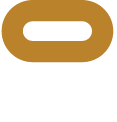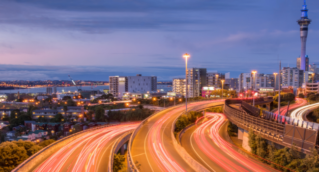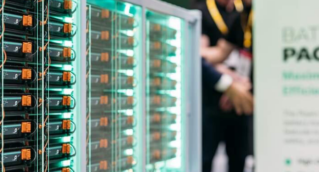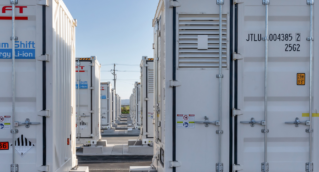1 December 2023
Advancing towards Sustainability and Customer Satisfaction: Insights from the Interferry Conference 2023
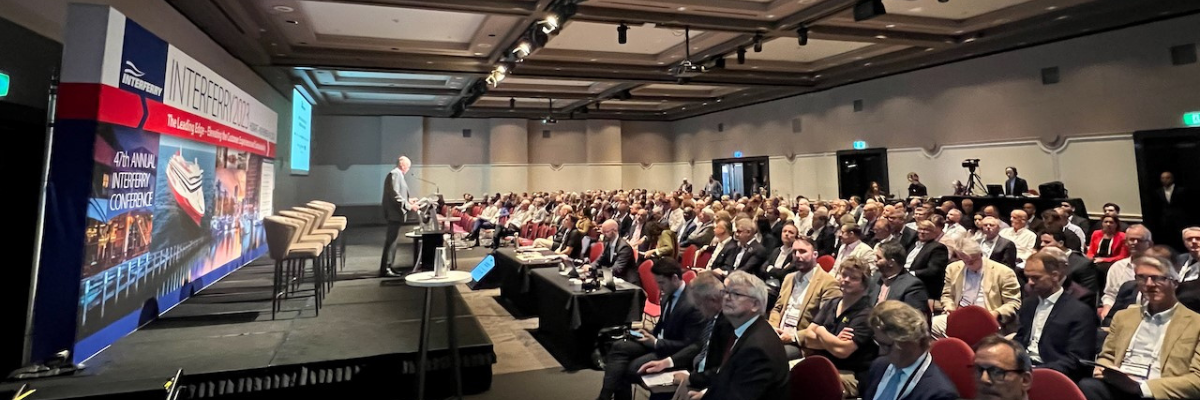
Ben Haselden, McKay Marine Manager, recently had the opportunity to attend the Interferry Conference 2023 held in Tasmania. As an industry expert and advocate for sustainability in the maritime sector, Ben shares his thoughts and experiences from the conference. With a focus on elevating the customer experience and embracing sustainable solutions, Ben provides valuable insights on the future of the ferry industry below.
Luxury! is how I would describe the travel to Interferry conference 2023 and I’m not referring to any cabin class or lounge privileges. For once we were able to attend an international conference which wasn’t in the northern hemisphere. And this, is absolute luxury! The opening address by Mike Corrigan spelled this out quite clearly to our northern hemisphere mates “Don’t complain of long hours of travel to the ‘Oceania-ites’, because it will fall on deaf ears” followed by **Plenty of Chuckles**
For those not aware, the Interferry conference is an annual gathering of industry experts, operators and dignitaries from around the globe aptly focused on everything ferry. Most notably, we heard from a humble and comical, home bred Tasmanian tourism operator who was very relatable to the kiwi way. Our very own East by West ferries and industry pioneer Jeremy Ward about the ongoing success of Ika Rere and their ability to use the learnings of an electric vessel to better sustain “their entire business both on and off the water”. The impressive Incat 135m project and the push Fullers Auckland are making towards their future of change.
Even with many other top, inspirational operators from around the world embarking on change, NZ and Australia were represented strongly as being current big adopters. This, and the fact we were in Australia for a global conference, was truly empowering for our industry. The 2023 theme was focused around “The leading edge – Elevating the customer experience and sustainability”. We could say in our slice of the industry (technology and electrification) we are largely focused on the latter, however we do cover the whole theme.
The leading edge
As the world becomes more aware of emissions, climate change and depleting its natural resources, industries involving ferries will find themselves investigating what they believe are the leading-edge solutions. Where, in reality, many of these solutions are little more than a “been there done that scenario” (in a good way). We’ve seen it proven, we’ve seen the adoption rate climb and we know it works. While we may look at the Incat Buquebus 135m electric ferry as being an extremely large scale and bold project by its gargantuan specifications, we can confidently know that what is going into that ship, with the clever team both building and integrating it, that it’s not actually that scary………just very big!
I am constantly taken aback that a huge portion of industry still hold the view that new technologies are more “bleeding edge” and can’t be trusted yet. The more I attend these conferences the more I’ve become familiar with the quirks of human nature and views on emerging technology. More so than ever we need to dispel these myths. Are we in an environment of pessimism, optimism or simply just a blanket fear of change?!?!
Elevating the customer experience: Do I really need to spell out where I’m heading with this? From my perspective, this is a no brainer. Go electric, have happy customers. Quiet, new, modern, smooth and reliable. Enough said.
Sustainability
Let’s take a different tack here. How about we talk about unsustainability and be blunt about the status quo? As a few presentations delicately pressed, major operators and port authorities engaging, especially in commuter services, who are renewing their fleets and vessels with internal combustion engined craft need to have some seriously strong reasons as to why. It could be excusable in a developing nation where the feasibility of high-speed charging is genuinely restricted by a lack of infrastructure. But in a major CBD, even with a strained HV grid, alternatives and now not-so out of the box solutions are viable. The likes of WETA in San Fransisco with their bold, against the grain by U.S standards project have options to alleviate this exact issue and they’ve nailed the feasibility of NOT finding excuses and are just getting on with it. As we can clearly see the status quo for them is unsustainable.
Fuel pricing and ongoing maintenance is rising rapidly and is showing no signs of slowing. Even the luxury yacht markets are considering the introduction of energy storage systems into their operations, in a semi hybrid way of reducing fuel usage and costs. If the luxury market who have probably the worst worldwide Marine use ROI figures are considering fuel reducing measures to make their use more sustainable both financially and environmentally, then the ferry market needs to take a very good look at themselves.
Enough is enough. The status quo is very quickly not going to fly. Step up and walk the talk or be left behind.
Ben Haselden
McKay Marine Manager
